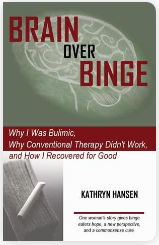Resources for Climate Friendly Habits
Here is a list of resources about how you can make your day-to-day life more environmentally friendly.
Just a note — Most of these books have nothing to do with the environment. Well, not specifically, but if you want to get your massive carbon footprint down a tonne or two, you are better off reading these books than anything about climate change, animal agriculture, biodiversity loss, or the health benefits of going plant based.
Those other resources are all very effective at making you think "Oh-oh. We’re totally killing the planet and making ourselves sick. I need to go vegan, organic, and plastic-free ASAP!"
What normally follows is…
"Except that it can't be tomorrow because Sharon in Accounts is leaving so there's going to be a morning tea and it would be rude if I didn't eat at least half a wheel of cheese. I also can't take the bus tomorrow because I have to go to the supermarket after work… Also, it might be raining, and the bus stop is a ten-minute walk away… Also, I'd have to get up fifteen minutes earlier and I'm quite tired. Actually, I might just go through the drive-thru on the way home. I know three beef tacos and a bottle of Coke is not very environmentally friendly, but I am very tired. [Unnecessarily long and dramatic sigh.] There's really no point trying to go green this week. I mean, I've already booked flights to Cairns next month. I'll start straight after that."
Sure you will.
Reducing your carbon footprint doesn't have to be all or nothing. Nor does it require copious amounts of willpower, the gutting of your pantry, cutting off your social circle, or relocating to a solar-powered shed on an organic farm.
People who get their carbon footprint down from twenty tonnes per year to two in the space of six months do exist, but they are as rare and geographically isolated as a mountain pygmy-possum.*
Most people live in urban centres and are quite happy going about their pleasantly plastic-wrapped, fossil fuel-emitting lives. If the average Australian wants to reduce their climate footprint, they are better off making small habitual changes they can sustain long-term.
Sure, there are some big-ticket items people can do like install solar, buy an EV, and switch out their natural gas water and heating for electric - but these things all require a large upfront investment (such as the purchase of a house).
If you don't have a lot of money (or a house), that's fine. There's still plenty you can do to bring down your carbon footprint. In fact, you can probably do a lot better than all those smug Tesla drivers. It will cost you less too.
If you want to know about all the small things you can do, read the blog. If you want to better understand the transformative power that comes with tiny habit changes, simplifying your life, and not always just doing whatever’s the easiest, most convenient and pleasure-filled option, read any of the books below.
*NB. Whilst endangered mountain pygmy-possums are only found in small alpine regions of Victoria and NSW, the zero-carbon superhumans are located Australia-wide. They are, however, just as rare. Their natural habitats consist almost exclusively of off-grid tiny homes fitted with compost toilets and water tanks, which are illegal to park almost anywhere in the country. Accustomed to hiding from local council employees, they are often reclusive, but can sometimes be spotted roaming through large, organic backyard vegetable gardens.
Books
DISCLAIMER: Clicking on the covers above will direct you to an external site where you can get more information about the books/podcasts/films. I am in no way affiliated with these sites and make no money if you choose to purchase something. In fact, I would highly recommend you check your local library first before making any purchases. If your library stocks one of these books, please reserve a copy then walk/ride a bike down there to get it as soon as you are notified that it is available. Only if your local library does not have a copy would I begrudgingly recommend buying it. And then only the Kindle version. They are cheaper and Kindle devices use very little power to charge. Far less than the energy needed to chop down a tree, turn it into paper, turn that paper into a book, drive that book to a warehouse, repack it into an oversized box (made from another tree) then ship it to your house.









